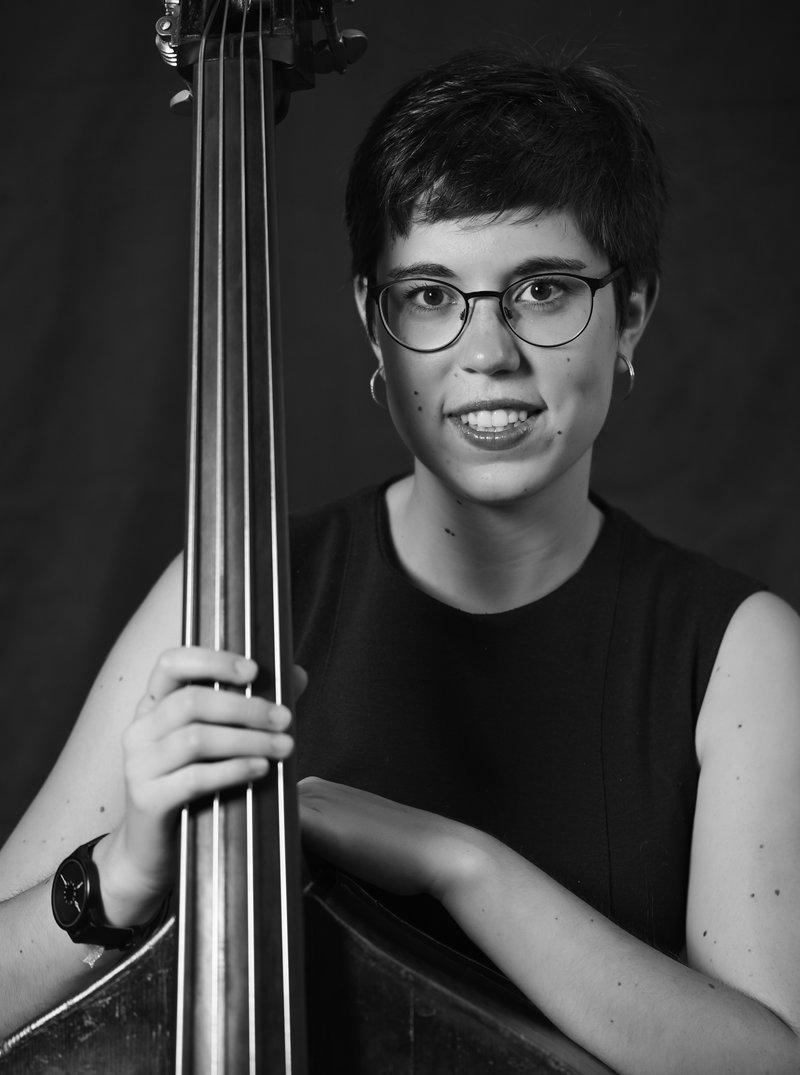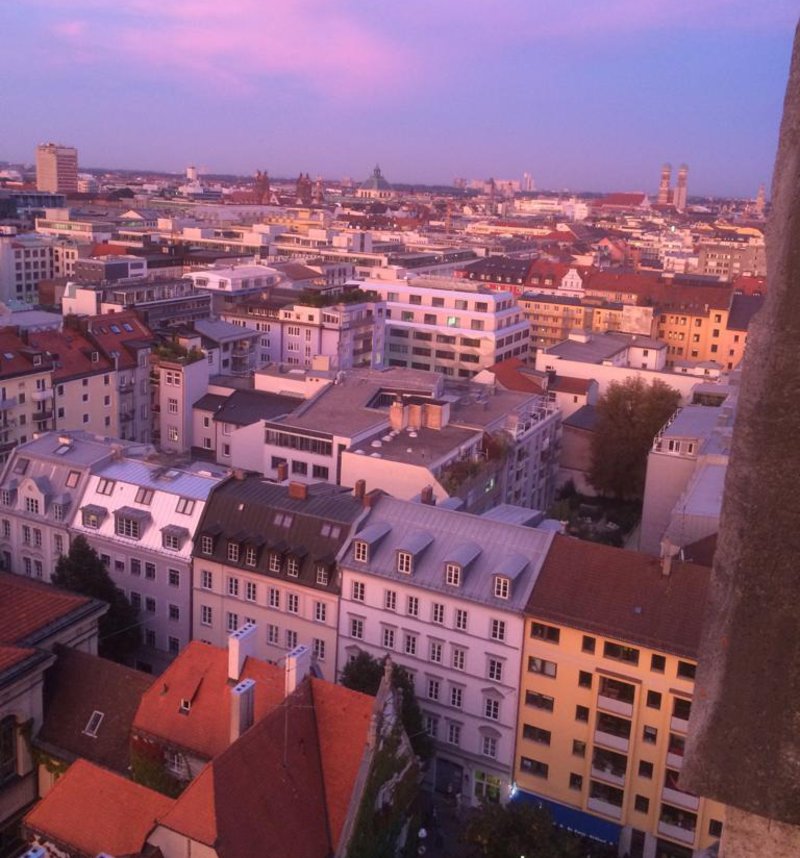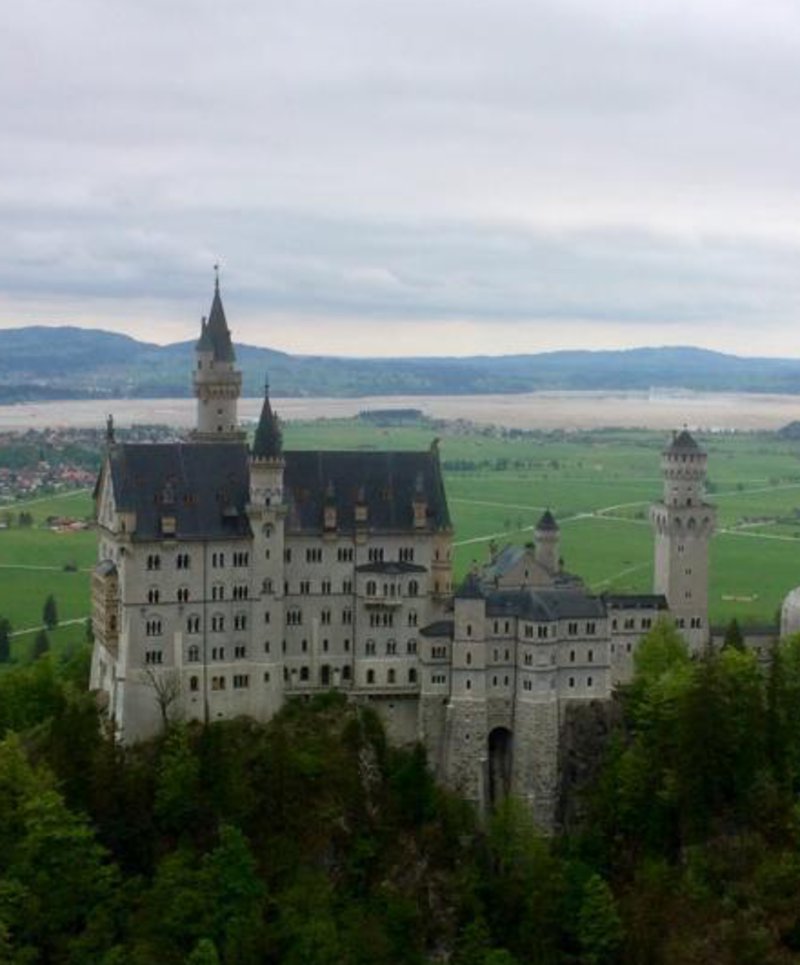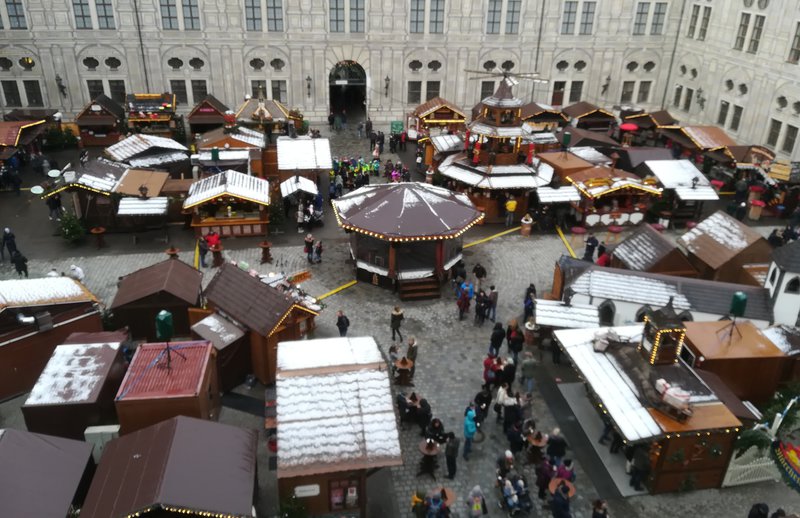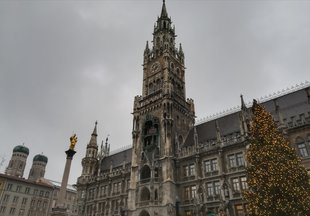Catalans Abroad
Mariona Mateu Carles
Musician from Sant Genís
A land of music lovers
Why did you leave Catalonia?
When I was about to finish my music degree I knew I wanted to continue studying. Since I really wanted to try to get in a school with a higher level and I could only find this abroad, there was no question I had to leave.
Why did you choose Germany as the place to live and work?
The musical scene is much more interesting and rich in Germany than in Catalonia. This is because there is a much bigger tradition of classical music in the country, but also because culture is quite well supported by the government and the people themselves. The music universities have a higher level – and are 10 times cheaper – and there are more opportunities to do Praktikums in orchestras. And in general the work as a musician is better paid.
How long have you lived there?
I‘ve already lived in Germany for four years, mostly in Munich but I also worked for 10 months in Stuttgart.
Are you happy with the job opportunities you found in your adoptive country?
I’m quite happy. Almost all the orchestras here have academies or Praktikums, which means that you get lessons from the players in the orchestra, get to play with them, and get a little pay every month. This is an amazing opportunity for students to get experience and it is necessary for your CV. After your studies, if you want to work as a musician in an orchestra, you need to do an audition. This is a hard time, because nowadays there are many more good players than places in orchestras and it can take years to get a place – or you decide to do something else. But it is still better than in Catalonia because there are many more orchestras here. Right now I have a small place in an orchestra in Basel with just a few projects per year and I’m freelancing and studying Historical Performance.
What do you think is the best thing about living there?
Maybe the best thing is that I can enjoy the luxury to be able to continue studying. This is only possible because it’s very cheap to study – about €200 per year – and because I can cover my living costs by freelancing. I appreciate this a lot and it would be almost impossible in Catalonia.
What would you most like to change?
I sometimes wish that people were more open. For example, that they invite people to their homes for a meal. And they should definitely use the two-surnames system! I find it horrible that women change their surname when they marry and that the kids only get one surname!
What do you miss most from home?
The family and popular culture. When I arrived I was looking for groups doing traditional dances, music or other things because I used to take part in those things in Catalonia. But I haven’t met anyone from those groups and most Germans (at least in big cities) don’t really stick to their traditions. I find it a pity, but here it’s seen as something for people who live in villages. And I also miss the food and our fruit and vegetables!
What do you take with you as a present from your new home when you go back to your own country?
My father always wants bread! They have so many different and interesting types of bread. I also sometimes bring sweet things that don’t exist in Catalonia, like Ovomaltine chocolate or some Christmas cookies. And I always bring Glühwein-candies (Glühwein is the warm wine that Germans drink at Christmas) because they used to be my grandfather’s favourites.
What characterises your local neighbourhood?
I live right in the centre of Munich, so it’s not very special. The almost three weeks of the Oktoberfest are a bit annoying, because it’s so crowded and you can hear ambulances the whole night. A very typical thing about the Bavaria region are the churches and the bells, because they’re very conservative and religious. The bells are super-loud but sound very nice! When I hear the ones in Catalonia they sound like toys.
What is the best experience you’ve had in your adoptive country?
I once played a concert in a village and there was a young woman with two little kids that looked super-interested in the music. I came back home on the train and they where also there and they told me they had already come in the morning for a walk around the lake and then went to the concert. I found it such a beautiful plan! On the way back they were already brushing their teeth so that they could go to bed straight away. Maybe it’s not a big experience, but I think it shows how some Germans like nature and music. And of course one of the best experiences was – and still is – to have met my boyfriend here.
Do you plan to go back to Catalonia?
No. I don’t know exactly why, but when I left I was already sure I wouldn’t come back. I love my work and it’s very important to me to have good conditions to do it. I’m very well integrated in Germany – I think I was already a bit German myself before coming – but I also enjoy being different! But I need the contact with my family and Catalonia, so I look forward to going there every time I have a holiday!
CATALANS ABROAD munich (germany)
SOME SUGGESTIONS:
Where are the best places for visitors to stay?
I think you should stay in the centre, because it’s quite small; you can get by walking almost everywhere and it’s also well connected to the whole region by train.
What do you consider the highlights for any brief visit for the first time?
I think it’s not only interesting but also important to visit the places related to Nazism. The movement started here and although it took much longer than for the Berliners to be aware of how and why it happened and to recognise their “guilt“, there are now many tours, signs and a new documentation centre. And half an hour away you can visit Dachau, one of the concentration camps.
And if visitors have more time or make a return visit?
They should definitely take a regional train and visit the local area. Neuschwanstein is very famous and a bit far away but I’d still recommend it, not only for the castle but also for the landscape. You can go to the Alps, which are of course beautiful. And in summer it’s great to take a bike or a train and go to one of the many lakes, go hiking and then swim in the cold water. If you’re interested in art, there are super-good museums: the Pinakotheken and the Lenbachhaus, where they have a lot of work by Kandinsky and “Der Blaue Reiter“.
Are there any places to avoid at all costs?
I think you should avoid the Oktoberfest! No, I‘m joking… It’s funny to see everyone in traditional clothes and you will love it if you enjoy drinking beer. But it’s no more than that, so I don‘t see the point of coming over to Munich just for this.
Can you recommend a place to have lunch with friends?
In my neighbourhood there’s a small but super-cute and delicious café called “Bella Bohne” with one or two meal options every lunchtime. Everything is homemade and the church in front makes it a lovely place [bella-bohne.de]. There’s also a tiny Indian restaurant called “Indisches Fastfood” which is definitely not fast but very good and homemade. You should drink a fresh made “Mango Lassi” with your meal! [Barer Str. 46].
Where would you have a special dinner for two?
I don‘t have a special place to recommend… but order Käsespätzle if you like cheese, it’s typical of Germany and tastes super-good!
When’s the best time of year to plan a visit?
Either in the summer, because the sky is blue and it’s warm – but not too much! Or in winter, with the Christmas markets and beautiful snowy landscapes.
What’s the best kept secret about the area?
Maybe I still don’t know it! But what many people that come for the Oktoberfest don’t know is that during those days you can go up all the stairs to the highest part of St. Paul’s Church and enjoy the views to the Oktoberfest and the whole city from there.
Leave a comment
Sign in.
Sign in if you are already a verified reader.
I want to become verified reader.
To leave comments on the website you must be a verified reader.
Note: To leave comments on the website you must be a verified reader and accept the conditions of use.

